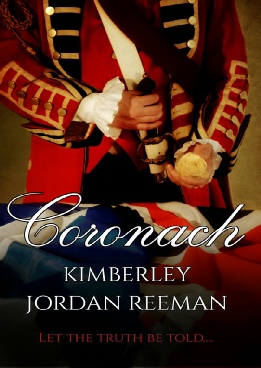FIVE THINGS I LEARNED WHEN WRITING CORONACH
28 May 2019
 Grief did not take my powers of creativity from me. If it had, I might not have survived the dark months following my husband’s death. Death is the great leveller: you may see it coming, you may accept its inevitability, but nothing can prepare you for the moment when everything you have, everything you were, and everything that was, falls away beneath your feet, and the world is shattered, and nothing will ever be the same.
Grief did not take my powers of creativity from me. If it had, I might not have survived the dark months following my husband’s death. Death is the great leveller: you may see it coming, you may accept its inevitability, but nothing can prepare you for the moment when everything you have, everything you were, and everything that was, falls away beneath your feet, and the world is shattered, and nothing will ever be the same.
I found my strength. To rise up from my knees, to focus, to find the stillness within from which the creative force flows, and to let that force carry me throughout the months of intensive work on Coronach. I wrote seven days a week from 11 am until 8 or 9 in the evening, sometimes stopping only when it was dark to remember that I had to eat something. I woke every morning with great clarity of mind, knowing exactly what needed to be done in the next scene (sometimes covering the table with piles of illegibly scrawled drafts before I achieved it) and I barely noticed the passing of time. I even managed to shut out the noise while they built a house next door. I gave myself entirely to the work.
History is not black and white. The more I researched, the more I realized that the Jacobite rebellion, like every other event in history, cannot and should not be portrayed simplistically. The issues were not black and white but many shades of grey. The Hanoverians were not all English; the Jacobites were not all Scots. It was complicated, and inextricably woven into the texture of the 18th century and what was essentially a world war being fought wherever their armies or navies met, or wherever nation could intrigue against nation, by those old enemies, Britain and France. Which led me, in due course, to the American Revolution, another complicated situation, but very definitely part of the pattern of the century.
We are bound by our common humanity. The past is not an unknown country. The people who experienced it, survivors of war and terror, loved and hoped and suffered as we do, sought truth, vengeance, redemption, God. They were not actors in some costume drama. It was their reality. My gift is to see that past and illuminate it, to take the reader by the hand and say, “Come with me, and let me show you how it was.” And it is my job to hold a mirror up to it and reflect it without compromise.
I found the courage to speak my truths. This is a novel based on fact. It’s a novel about love and war and death, and its truths are fierce and dark. And many armchair critics will hate it and post savage reviews of it: the mob instinct is very strong these days. But these things happened, and my characters reflect that reality. Their personalities and their pasts and their actions are their own, and they have to be allowed to live out their destinies. To do otherwise, to “pretty up the past”, would be to compromise my integrity as a writer. I am always in control of the business of writing, the exercise of the craft, but I merely watch the action and direct it. This is the power and the magic. It is what I do. It is who I am.
